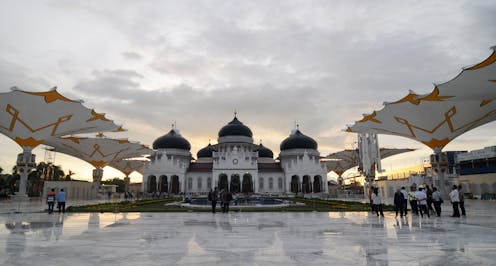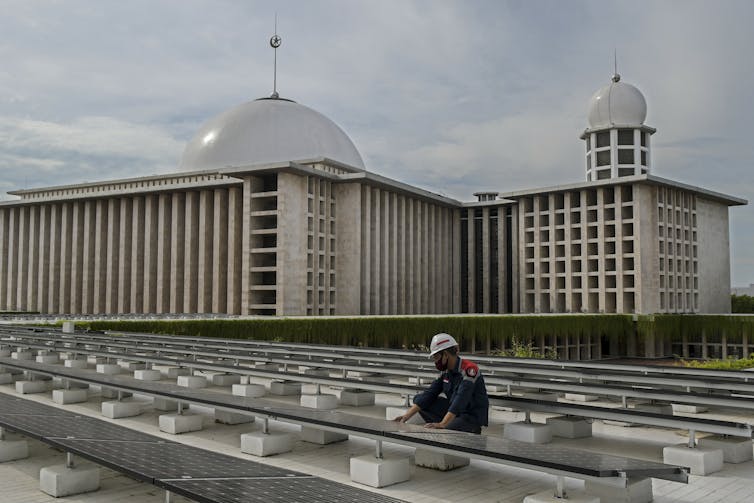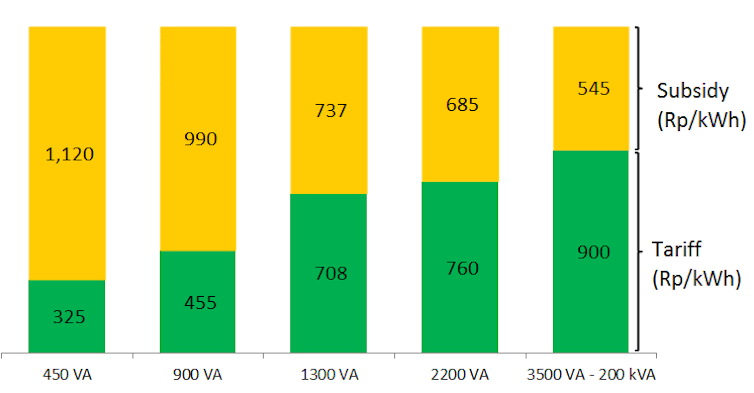
The latest IPCC report recommends that we need to cut greenhouse gasses emission hard and fast as the Earth is heading towards an unlivable stage.
One of the major cuts should come from the energy sector. As fossil fuel combustion and industrial processes accounted for 78% of greenhouse gasses emissions,, rapid transition from fossil energy to cleaner energy is more imminent than ever.
Countries all around the world have embarked on various initiatives to encourage the development of clean energy.
The latest move in this green initiative involves religious leaders to promote fossil fuel transition.
In 2018, Pope Francis has urged people and businesses to reduce use of fossil fuels and find a way to use green energy in order to save the climate.
Meanwhile, Morocco, under its Green Mosques Initiative, has installed solar panels on more than 100 mosques roof. They have also trained Moroccan imams and female clerics to raise awareness on sustainability energy
Following the step of Morocco, Indonesia as the world’s largest Muslim population has also shown how the government is working together with clerics and religious organisations to promote green energy in the country.
Muslim clerics can help educate the community
Indonesia has faced tremendous challenges in its efforts to develop renewable energy as the country still relies heavily on fossil energy.
However, in its latest attempts, its government has engaged with Islamic leaders and communities to help the country achieve net zero emissions by 2060.
Conserving nature and the environment is one of Islam’s precepts. Thus, the use of clean energy is also ethically and morally important.
Holding onto that principle, last year, the Ministry of Environment and Forestry had signed a partnership agreement with Nahdlatul Ulama (NU), the country’s largest Muslim organisation, to enhance environmental management and sustainable forestry.
This partnership is vital because there are over 28,800 Islamic boarding schools with millions of muslim students affiliated with NU.
Engaging with religious figures is a strategic move, as a 2020 survey reveals that Indonesia’s citizens placed the highest trust in information sourced from religious figures.
The government can collaborate with Muslim religious leaders to campaign about the urgency of using a cleaner energy as a part of Islamic creed: rahmatan lil alamin (a mercy to all creation).
Religious leaders can explain why Indonesians have to reduce carbon emissions to keep the earth safe during their talks. They can encourage the people to utilise more renewable energy, such as harvesting solar energy from their houses rooftops.
The government also can multiply similar agreements with the other religious organisations such as Muhammadiyah, the country’s second largest organisation, and Indonesian Ulema Council as a potential help in accelerating its climate targets.
Collaboration between either organisations is not a difficult task since both have started their own grassroots eco-movement such as Ecomasjid or green mosque led by Indonesian Ulema Council..
Making greener Islamics site
With the help from clerics religious communities, Indonesia could also promote clean energy by making religious sites greener.
Indonesia is the home of Southeast Asia’s biggest mosque, Istiqlal, and it recently won an award from International Finance Corporation as the first eco-friendly religious site in the world. after installing 150-kilowatt peak (kWp) solar panels on its roof..
The panels can supply 16% of the Istiqlal’s total electricity demand.

There are 290,000 mosques across Indonesia, and installing solar energy on their roofs can be a significant drive for clean energy development in the country.
Assuming all mosques’ roofs host one kWp, with a potential of 3.4 kilowatt-hour (kWh) minimum electricity production per kWp of solar energy, mosques across the country can generate one million kWh of electricity every day. It’s almost equal to annual electricity consumption for a thousand Indonesians.
It is crystal clear that installing solar panels helps to reduce carbon emissions.
Solar panels only emit a small amount of carbon - 50grams of CO₂ equivalent per kWh - during its lifetime. Meanwhile, coal power plants emit over 1000grams CO₂ equivalent per kWh, which contributes 60% to the country’s total electricity generation.
How can we make it happen?
First, the government can equip religious figures, including mosque managers, with knowledge about the importance of clean energy. With a correct understanding, they can educate and inspire people about clean energy during their sermons. Indonesia may learn from Morroco’s experience.
However, the work doesn’t end there since installation of rooftop solar is still expensive.
A study finds that despite the carbon reduction benefit, installing a rooftop PV system on a mosque is financially unfeasible because Nowadays, mosques are categorized as social activity customers which receive electricity subsidies vary between Rp 545-1120 (US$ 4-8 cents) per kWh (Figure 2). Its policy made solar generation far more expensive than subsidised tariffs.

To answer this, the Indonesian government has provided an incentive of Rp 9 million (US$ 630) for solar panel installations at houses, small business, schools and religious sites..
Indonesia’s Energy and Mineral Resources Ministry needs to collaborate with Religious Affairs Ministry to push this green mosque project. The latter ministry can, for example, set aside 1% of its yearly budget (over Rp 67 trillion (US$ 4.7 billion)) to help mosques install their rooftop solar panels.
In five years, these direct funds could make mosques across the country to be a part of Indonesia’s sustainable living.
David Firnando Silalahi is also affiliated with Directorate of Research and Studies, Overseas Indonesian Students' Association Alliance (PPI Dunia).
This article was originally published on The Conversation. Read the original article.







